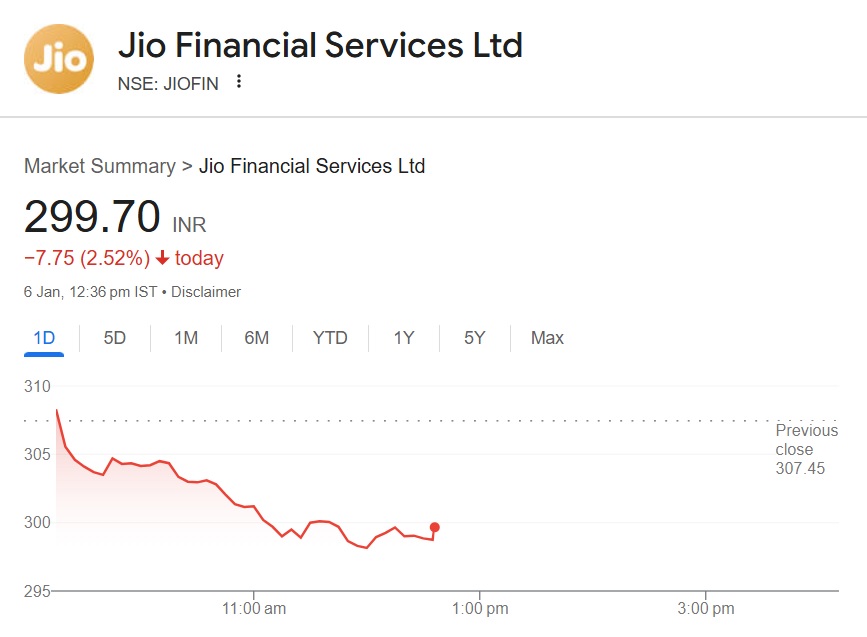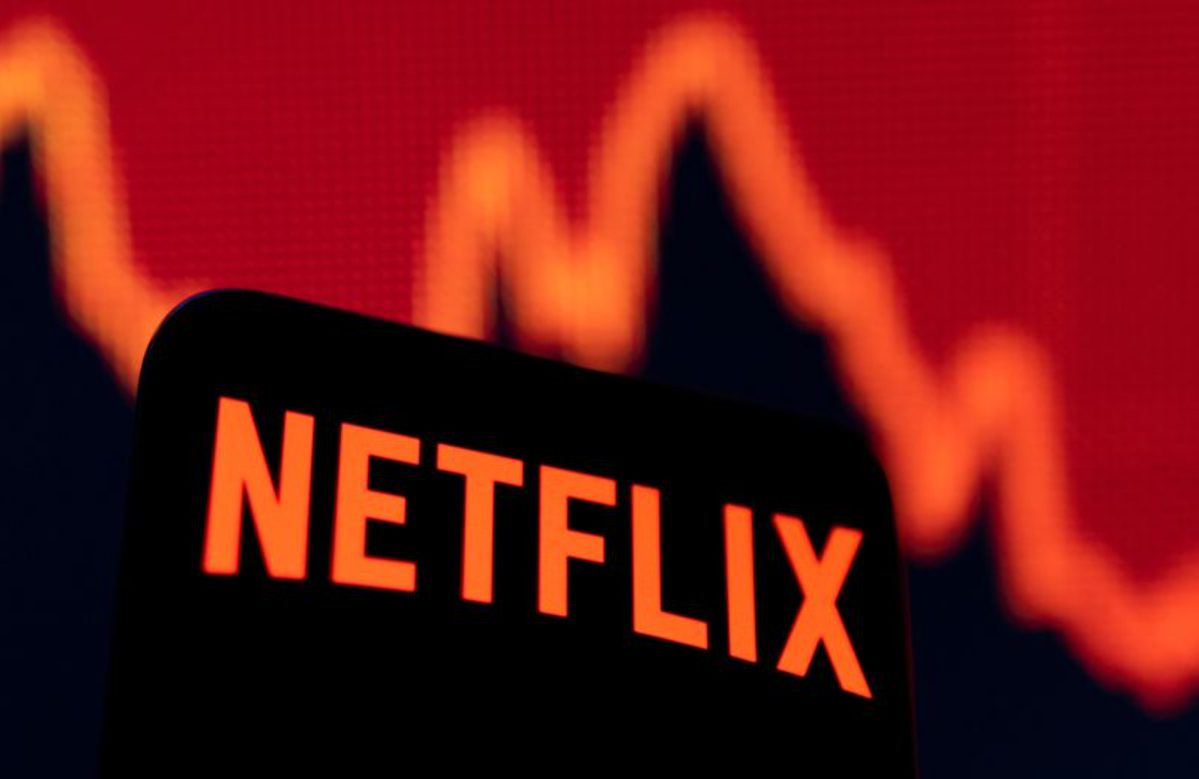Jio Financial Shares Dips Below 299: Best Time to Buy?

Jio Financial Services shares dipped below the 300 mark on Monday and are trading at the Rs 299 level. The stock dipped to a daily low of 298 and is displaying bearish sentiments in the charts. The fall comes after Sensex and Nifty reported a dip of 830 points and 250 points on Monday’s opening bell. Nifty is now at the 23,750 level, while Sensex plummeted to the 78,392 range. The stock market is under pressure as foreign institutional clients offloaded nearly $12 billion after Trump’s victory.
Also Read: Tesla Stock in Trouble? JPMorgan Says Profits May Vanish in 2025

Best Time to Buy Jio Financial Shares?

Billionaire Mukesh Ambani-owned Jio Financial Services shares are among the most sought-after assets in the Indian market. The conglomerate also plans to launch another new IPO on Reliance Jio, which deals with fibred cables and internet connection. Once the IPO is launched, the firm aims to raise billions in revenue and further its expansion goals.
Also Read: META Stock Gets Upped Target to $750: Here’s Why
“2025 should be the year in which we should be seeing the listing of Jio Platforms and that is where the earning opportunity (shares) should be for making money out of that particular opportunity,” said Deven Choksey, the MD of DRChoksey FinServ to ET News. “This is a matter of time before Reliance Jio captures the larger part of the data market in a systematic manner because the end-to-end connectivity is fully established.”
If Reliance Jio surges in price, Jio Financial Services shares could also move in tandem with the rally. The dip below Rs 299 could be seen as an opportunity to accumulate the stock at lower prices. If the markets rebound and gain momentum, Reliance Industries-linked stocks could be the first ones to surge in value. Investors who hold on for the next five to 10 years could make massive profits when it hits new highs.
Also Read: Microsoft Stock: Why Analysts Say MSFT Could Hit $550 in 2025
In conclusion, long-term investors can make the most out of the Jio Financial shares dip. Short-term investors can stay away from the stock as the stock market is currently volatile. The bearish sentiments could continue as Trump could ignite another fresh trade war.
Jio Financial Shares Dips Below 299: Best Time to Buy?

Jio Financial Services shares dipped below the 300 mark on Monday and are trading at the Rs 299 level. The stock dipped to a daily low of 298 and is displaying bearish sentiments in the charts. The fall comes after Sensex and Nifty reported a dip of 830 points and 250 points on Monday’s opening bell. Nifty is now at the 23,750 level, while Sensex plummeted to the 78,392 range. The stock market is under pressure as foreign institutional clients offloaded nearly $12 billion after Trump’s victory.
Also Read: Tesla Stock in Trouble? JPMorgan Says Profits May Vanish in 2025

Best Time to Buy Jio Financial Shares?

Billionaire Mukesh Ambani-owned Jio Financial Services shares are among the most sought-after assets in the Indian market. The conglomerate also plans to launch another new IPO on Reliance Jio, which deals with fibred cables and internet connection. Once the IPO is launched, the firm aims to raise billions in revenue and further its expansion goals.
Also Read: META Stock Gets Upped Target to $750: Here’s Why
“2025 should be the year in which we should be seeing the listing of Jio Platforms and that is where the earning opportunity (shares) should be for making money out of that particular opportunity,” said Deven Choksey, the MD of DRChoksey FinServ to ET News. “This is a matter of time before Reliance Jio captures the larger part of the data market in a systematic manner because the end-to-end connectivity is fully established.”
If Reliance Jio surges in price, Jio Financial Services shares could also move in tandem with the rally. The dip below Rs 299 could be seen as an opportunity to accumulate the stock at lower prices. If the markets rebound and gain momentum, Reliance Industries-linked stocks could be the first ones to surge in value. Investors who hold on for the next five to 10 years could make massive profits when it hits new highs.
Also Read: Microsoft Stock: Why Analysts Say MSFT Could Hit $550 in 2025
In conclusion, long-term investors can make the most out of the Jio Financial shares dip. Short-term investors can stay away from the stock as the stock market is currently volatile. The bearish sentiments could continue as Trump could ignite another fresh trade war.

